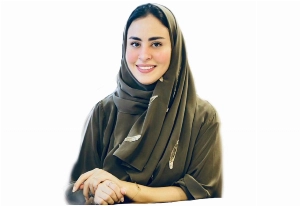THE global economy plays a major role in politics and international relations, as it is the interchange of politics and economics in world affairs. It has been an essential subject of international relations since the 1970s. The influence and strength of Saudi Arabia’s economy in the global marketplace have grown exponentially in the past few decades.
Economics is the driving motivation behind the political activities of countries. Saudi Arabia is the only Arab country among the members of the G20. As such, the Kingdom’s role is to efficiently use the great resources of the Middle East. Saudi Arabia seeks to be one of the first countries worldwide to achieve the United Nations Sustainable Development Goals by creating development policies and building statistical indicators.
Regardless of the fact that Saudi Arabia is the world’s main producer of oil, the government is focusing on capital regional and foreign investment as well as banking and financial systems which are capable of empowering the Kingdom to become the number one regional economy and one of the largest in the world.
Economic structuralism focuses on political behavior that is driven by economic motivation and recognizes that political outcomes are determined by economic power. Theorists of economic structuralism assert that behind every government is a class of owners in whose interests the government usually acts. A primary goal of a wealthy country like the Kingdom is to keep markets abroad open so that international investors can join the local market and trade profitably.
This was one of Saudi Arabia’s objectives in the recent Future Investment Initiative (FII) which included discussions of trends in the world economy and investment environment. Such investment reinforces the Kingdom’s economic status as the largest economy in the Middle East and the richest Arab country, according to several eminent economists. Crown Prince Muhammad Bin Salman’s major objective is to turn Saudi Arabia into an economic powerhouse and to place the Middle East at the forefront of the world.
The focus on increasing the degree of interconnection between regional and national economies rather than international economies may benefit Saudi Arabia’s future development and help it build a solid and fully independent position in the world.
— The author is a Saudi political analyst specialized in International Relations. She can be reached at: ekleel.sallam @hotmail.com. Twitter: @EkleelBS
